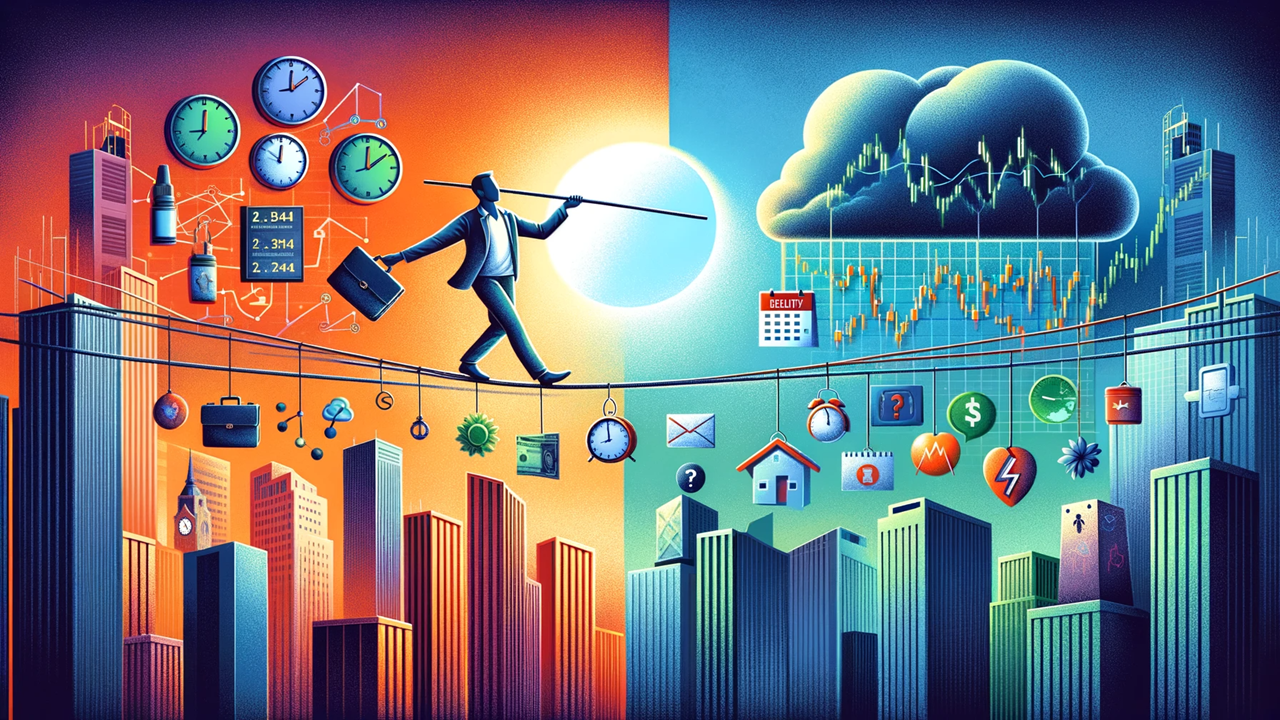The Gig Economy: Empowering Flexibility or Fostering Uncertainty?
The Gig Economy stands at a crossroads between offering unparalleled flexibility and perpetuating financial uncertainty. This deep dive explores the intricate balance between freedom and insecurity that freelancers navigate, shedding light on the multifaceted nature of gig work.

In the shimmering landscape of the modern workforce, the gig economy emerges as a beacon of flexibility, promising liberation from the rigid 9-to-5 grind. Yet, beneath its glossy veneer, it harbors a sea of uncertainty. This duality paints a complex portrait of a labor market in flux, raising the question: Is the gig economy truly empowering flexibility, or is it fostering an undercurrent of uncertainty?
The dawn of the gig economy marked a seismic shift in traditional employment paradigms. Freelancers, independent contractors, and project-based workers have stepped into a world where autonomy is king. The ability to choose when, where, and for whom to work is an unprecedented evolution, offering a bespoke work-life balance. This flexibility is not just a perk; it's a revolution in making careers more accessible. Parents, caregivers, students, and those with health issues find refuge in the gig economy's embrace, crafting work schedules around life's unpredictable rhythms.
However, with great freedom often comes great unpredictability. The shadow of uncertainty looms large over gig workers, manifesting in income instability and a lack of traditional employment benefits. The feast-or-famine nature of freelance work can lead to financial rollercoasters, with periods of abundant work followed by daunting droughts. Unlike their counterparts in traditional roles, gig workers are often left to their own devices when it comes to health insurance, retirement plans, and other safety nets. This absence of a cushion turns every professional hiccup into a potential freefall, making financial resilience not just a virtue, but a necessity.
The psychological landscape of gig workers is a terrain marked by contrasting features. On one side, there's the exhilaration of chasing one's passions, the thrill of varied projects, and the pride of entrepreneurship. On the other, there's the anxiety of unpredictable paychecks, the solitude of working in isolation, and the quest for the next gig. This emotional rollercoaster is the unspoken price of admission to the gig economy's promised land of flexibility.
Despite these challenges, the gig economy is not a monolith of despair. It's a canvas where the hues of innovation and resilience paint a picture of potential. Digital platforms have emerged as the new town squares, connecting freelancers with global opportunities. These marketplaces are not just transactional hubs; they're communities where skill development, networking, and reputation building are part of the currency. In this ecosystem, adaptability and continuous learning are not just encouraged; they're the linchpins of survival and growth.
Moreover, the narrative of the gig economy is being rewritten by its very architects: the workers. Freelancers are banding together, forming collectives, and advocating for rights and protections. The conversation is shifting from individual survival to collective bargaining, marking a paradigm shift in how gig work is perceived and valued.
The regulatory landscape, too, is beginning to respond to the gig economy's complexities. Governments and policymakers are grappling with the task of redefining labor laws to encompass the nuances of freelance work. The challenge lies in extending protections without stifling the flexibility that makes gig work appealing. It's a delicate balance, akin to crafting a safety net that's strong yet invisible, offering support without entangling the very freedom it aims to protect.
In this kaleidoscopic world of the gig economy, the future of work is being reimagined. It's a future where flexibility and security are not at odds but in harmony. A future where the stability of safeguards matches the freedom to choose how, when, and where to work. This vision is not just a dream; it's a blueprint for a labor market that respects the fluidity of modern life while anchoring it in certainty.
The gig economy, with all its complexities, is a testament to the human spirit's adaptability. It's a narrative of empowerment shadowed by uncertainty, a story of freedom penned with caveats. As we navigate this evolving landscape, the question remains: Will we steer this ship toward a horizon of balanced flexibility, or will we sail into a tempest of unchecked uncertainty? The answer lies in our collective hands, in the choices we make, and in the voices we raise. The gig economy is our canvas, and the future of work is our masterpiece, waiting to be painted with bold strokes of innovation, empathy, and resilience.
In conclusion, the gig economy embodies the dual spirits of flexibility and uncertainty, each feeding into the other, creating a dynamic yet unpredictable work environment. It's a realm that demands a delicate balancing act, offering the freedom to shape one's professional journey while challenging workers to navigate the turbulent waters of financial and emotional volatility. As we stand at this crossroads, the direction we choose will not only define the future of the gig economy but also the very essence of work in the times to come.










